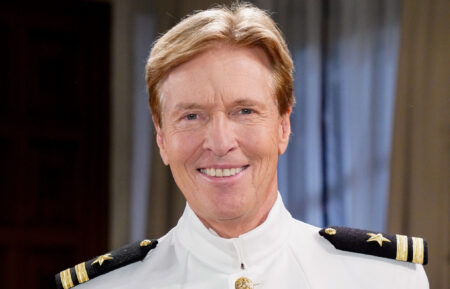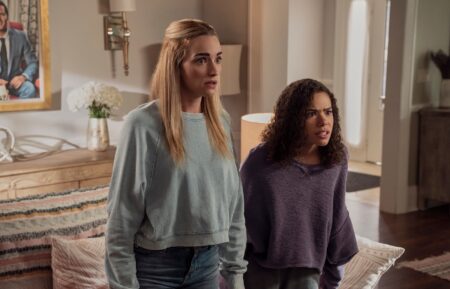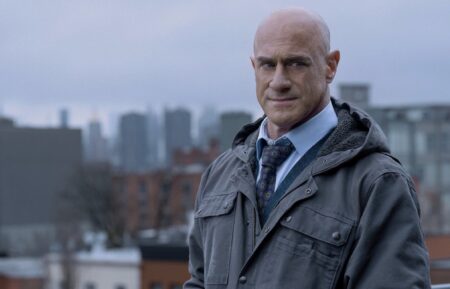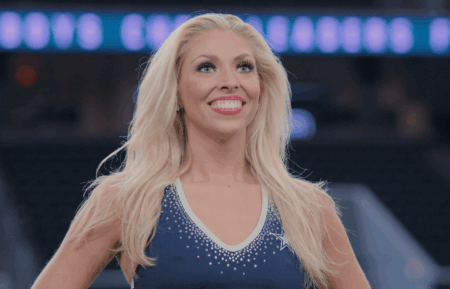The Good, the Bad and the Ugly of Live TV, From Steve Harvey to ‘Grease Live!’
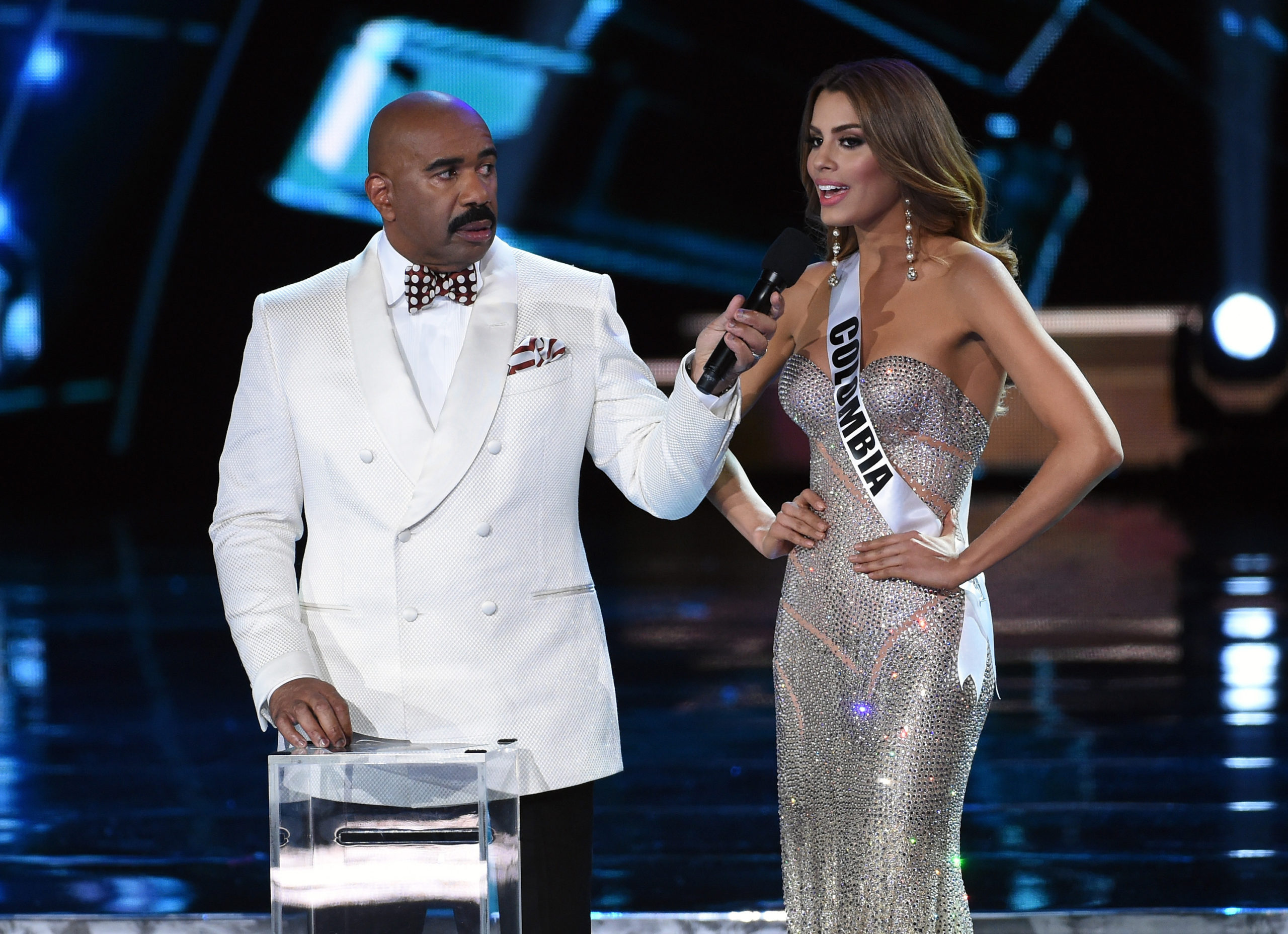
To stay alive, broadcast TV is going live.
Fox scored big ratings this Sunday with Grease Live!, which attracted 12.2 million viewers and a strong 4.3 rating among adults 18-49. A day later, CBS and NBC sealed a new $450 million deal to each air five Thursday Night Football matchups–once again demonstrating the power of live NFL games. Events like Grease Live! and the NFL split defy time-shifting, as viewers want to be part of the action as it happens. The price tag may be high (Grease cost at least $10 million, estimates one insider), but advertisers pay a premium for such captive audiences.
Viewers are also attracted to the unpredictable nature of live TV. Beyond those electrifying ratings, Grease Live! encountered a few audio glitches during its broadcast–mistakes that normally wouldn’t make it to air. (Indeed, those problems were fixed by the time it aired, tape-delayed, on the West Coast.)
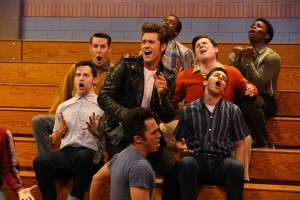
Aaron Tveit as Danny Zuko in Grease Live!
And then there’s the now-infamous case of Steve Harvey.
The host’s Miss Universe pageant gaffe on December 20, 2015 on Fox—in which he announced the wrong winner—made him the punch line of jokes around the world. (And he’s not exactly welcome in Colombia, whose contestant he first awarded—and then had to take away—the prize.)
“A mistake I made probably cost this woman more pain than she deserved,” Harvey now says. “It was human error.” According to Harvey, he attended all of the rehearsals prior to the show, and at no time was he told that he’d announce the first runner-up before the winner. On stage that night, when he saw Miss Colombia’s name on the Teleprompter, he assumed she should be awarded the crown. In fact, Miss Philippines is the new Miss Universe.
“The only thing that ticked me off is that the [pageant] people didn’t tell me how to fix it,” he says. “I walked back out there and I just owned it.”
Harvey’s mistake became a worldwide phenomenon. That kind of impact, for better or worse, is exactly why broadcast networks have returned to live programming in such a big way.
Live broadcasts have been a hallmark of television going back to the dawn of the medium—when there was no videotape. Now, as viewership has splintered because of so many choices, networks are adding more events to their schedules in an effort to force immediate tune-in and make some Harvey-size noise.
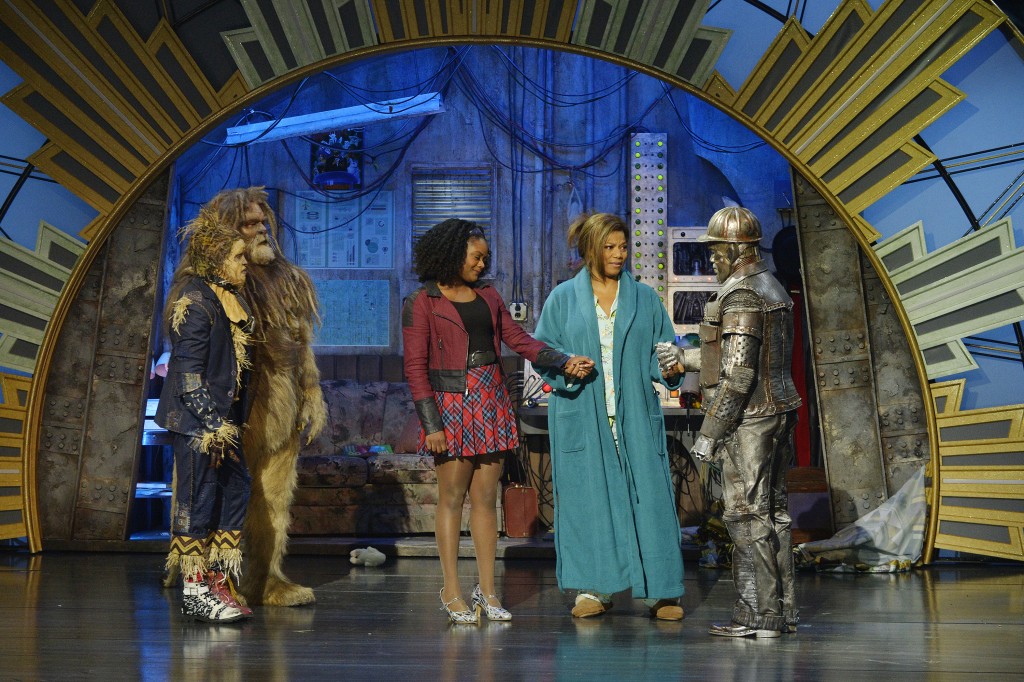
The Wiz Live!
The advent of social media has advanced the cause, as people see posts about shows and then start watching. In the case of Grease Live!, Nielsen reports that 358,500 people sent 1.2 million tweets about the musical (even more than NBC’s previous three live musicals).
Mark Bracco, executive vice president of Dick Clark Productions (which produces a plethora of live events, including the Golden Globes, American Music Awards and Miss America), says airing live helps in this age of delayed viewing: “[You want] events that are vital enough for people to say, ‘I gotta be there at 8 o’clock to watch. I can’t even start five minutes later, because I might miss something great.’”
Some of broadcast’s biggest shows, including football, competition series like The Voice and American Idol (which air live for parts of their runs), Dancing With the Stars and the Academy Awards benefit from airing in real time.
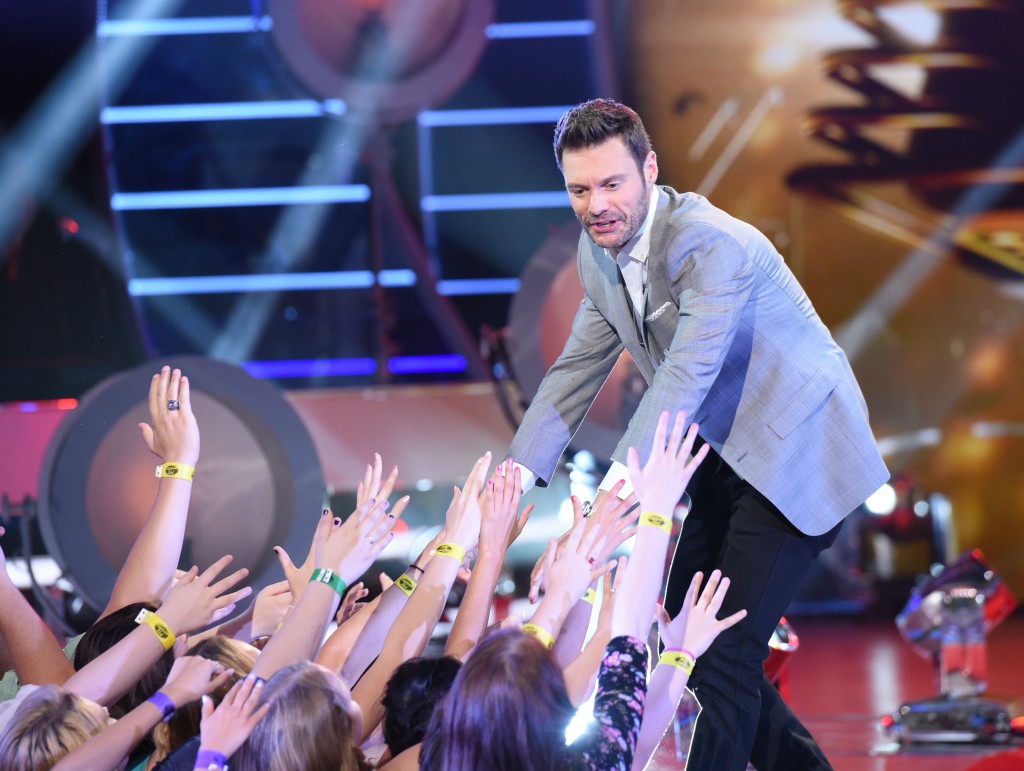
Ryan Seacrest on American Idol
NBC in particular has embraced the trend, starting with 2013’s The Sound of Music Live! The network has since produced Peter Pan Live! and The Wiz Live!, and Hairspray Live! will air in December. (NBC’s sitcom Undateable, which just wrapped its season, also aired live each week.)
RELATED: How The Wiz Live! Continued the Power Trend of TV Musicals
Later this year, both Fox and NBC are also staging real-time religious musical events: Fox’s The Passion, narrated by Tyler Perry, comes in March, and NBC has a December Nativity special from producers Mark Burnett and Roma Downey.
CBS just reversed its long-standing practice to air the Grammy Awards on a tape delay on the West Coast. For the first time, on February 15, the show will be live across the country. “We’re a nation that wants to see things live, especially event programming,” says CBS Senior Executive Vice President Kelly Kahl. “This is one of the biggest events there is.”
But live TV presents another set of challenges to the networks, particularly because they must still adhere to FCC content standards—which can be tough when talent doesn’t cooperate. The most infamous example is the 2004 Super Bowl halftime show, when Janet Jackson’s nipple was exposed for a millisecond. The FCC fined CBS a record $550,000. (The fee was eventually thrown out by an appeals court.)
Nonetheless, the incident led to a clampdown on broadcasting indecency. A five-second delay remains standard for most telecasts, which is usually long enough to catch inappropriate language but not to precisely edit out the profanity.
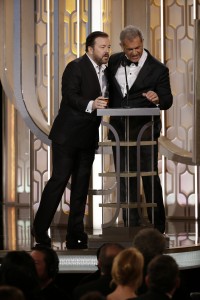
Ricky Gervais and Mel Gibson at the Golden Globes
Viewers of January’s Golden Globes missed several jokes from host Ricky Gervais and presenters like Jonah Hill because the actors uttered a few expletives, forcing standards employees to drop large sections of audio.
“It is someone’s split-second call to drop audio, and I absolutely applaud the professionalism and dedication of a group of people who are complete experts at it,” says Paul Telegdy, NBC’s president of alternative and late-night programming. “They err on the side of caution. The Globes has always had that kind of loosey-goosey feel to it, but it was more than usual [this year]. I was wondering, ‘Is it a full moon?’ or ‘Have they all had a longer cocktail hour than usual?’”
“Within the technical limitations of a live broadcast, we used every tool to stop people at home from hearing things that the FCC would not like them to hear on NBC,” he says. “Do I wish that people used less colorful language so that the experience at home was less confusing? Yes. But we are going to police it while we are FCC-regulated in these matters.”
Telegdy also cautions that not every show or event needs to be live, as highly edited, pretaped episodes are still much easier to produce. “There are lots of shows that for simple execution reasons are not live, and when you try them live, you make them worse when you didn’t.”
The exec says NBC has even trimmed back the number of live hours it produces of America’s Got Talent. “The live shows are really special and they’re a big part of the event nature of the show, but the bias is mainly in favor of highly edited pre-taped episodes. Live is more expensive, so you need to [factor that into the decision and ask], ‘Is there a reason to do it live?'”





